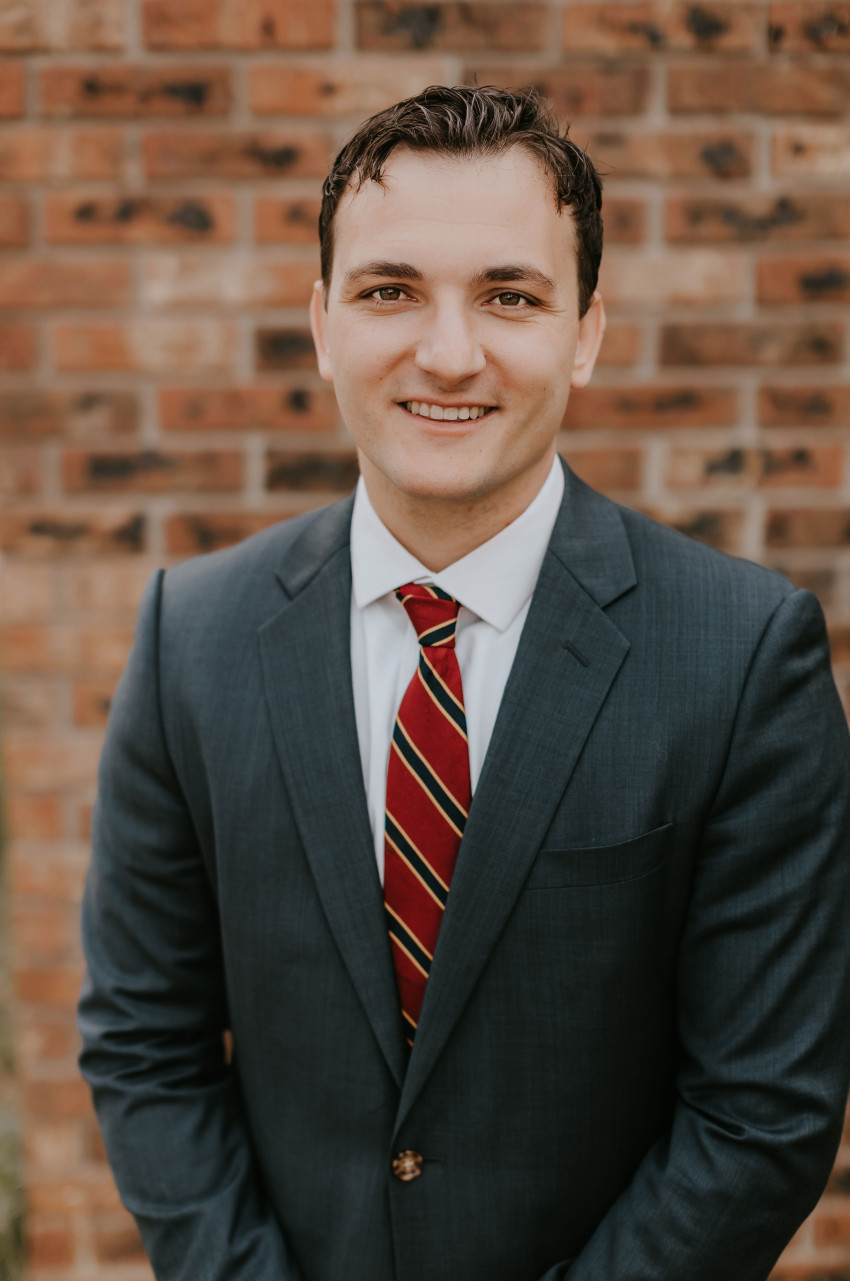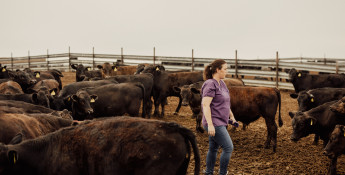By Greg Doering on November 8, 2023
Kansas Farm Bureau helps bridge the gap in shortage of rural lawyers

The list of reasons why farmers and ranchers may need to consult with a lawyer is long. Farms and ranches are businesses that must comply with myriad local, state and federal regulations. They also often have large footprints with occasionally contested boundaries. Furthermore, roads, utilities and other necessities of modern-day life often seek easements across open ranges and farm fields under private ownership.
Attorneys are as much of a necessity on farms today as seed, fertilizer and tractors. The only problem is the latter are far more available than the former in Kansas. Four out of five attorneys in the state reside in just six urban counties, where the lawyer to resident ratio is 1 to 268. In the rest of the state, the ratio is 1 to 808.
This lack of access affects all rural residents in Kansas and prompted Kansas Supreme Court Chief Justice Marla Luckert to form the Rural Justice Initiative Committee in late 2022 to begin addressing the lack of attorneys across the countryside.
“We have to recognize that there is not access to justice, and the system of seeking redress for those grievances is unbalanced because it’s financially inaccessible, or individuals have no lawyer or otherwise lack the resources to get the information they need to navigate the complex system and procedures of redressing that grievance,” Luckert said when announcing the 35-member committee.
The committee is in the process of compiling data on the legal needs in rural communities and studying demographics so it can make recommendations on how to recruit and retain more rural lawyers in 2024.
FOUNDATIONAL MISSION
The Kansas Farm Bureau (KFB) Legal Foundation was created to advocate for the agricultural industry to unlock the full potential of farmers and ranchers and improve their quality of life. The lack of rural attorneys became a focal point for the foundation in 2020, when it launched Rural Law Practice Grants.
The grant provides an incentive of up to $16,500 for attorneys to establish practices anywhere in the state outside Douglas, Johnson, Sedgwick, Shawnee or Wyandotte counties. Recipients receive the grant money in three installments, with the first $5,500 paid after passing the bar examination and starting practice in rural Kansas. The remaining installments are paid after a recipient’s continued practice in rural Kansas for one and two years, respectively.
“The KFB Legal Foundation board was looking for ways to help meet the legal needs of our rural members, and similar state-sponsored programs exist for other professions like doctors and veterinarians,” says Wendee Grady, KFB Legal Foundation director. “Our board was in a position to create this program for rural attorneys.”
The initial Rural Law Practice Grants were awarded in the fall of 2021 to three recent law school graduates. While those first recipients all attended in-state schools, the program is open to any graduate who commits to practicing in rural Kansas.
A RURAL PRACTICE
After a lengthy journey to becoming a lawyer, Luke Sunderland is one of the first recipients of the KFB Legal Foundation’s Rural Law Practice Grant, and he joined a practice in his hometown of Sabetha, a town of about 2,500 in Nemaha County.
He worked for a year in Kansas City after completing his bachelor’s degree at Kansas State University before embarking on a master’s degree program in Germany, where he met his wife. As he was concluding his studies abroad, Sunderland and his wife knew they wanted to be in a place like Sabetha to raise their family, but there weren’t a lot of options for someone with degrees in politics, economics and philosophy there, so he decided to go to law school. He hasn’t had any regrets about becoming a lawyer or practicing in a small town.
“Practicing in a rural environment, it’s been awesome,” Sunderland says. “I’ve kept in contact with some of my law school friends, and they’ve said they are bored, and that is one thing I am not. I have plenty of opportunity to delve into all sorts of law.”
RURAL-URBAN DIVIDE
Lawyers at firms in cities often specialize their practice in very narrow areas. Sunderland has helped clients with estate planning, worked as court-appointed attorney representing people facing criminal charges and dabbled in some civil family law, in addition to serving as assistant attorney for Sabetha and nearby Seneca.
“You just touch a lot of bases. One of the benefits of a rural practice is you get to do a little bit of everything,” he says.
Sunderland’s experience is common for a rural attorney, but there are rewards to an urban practice as well, like a higher salary. The cost of law school alone can prohibit recent graduates from starting a practice in a rural area, and that’s before weighing other lifestyle factors young people often consider when choosing where to begin their career.
“It’s not unique for attorneys — this problem exists in other professions,” Grady says. “Population trends in general have people moving to more urban areas.”
STARTING A PRACTICE
Sunderland joined an existing practice when he returned to Sabetha, and he jumped into the everyday legal work that happens in a small town.
“What I’ve really come to appreciate is that no matter what role you have as an attorney, even a criminal case, you’re really helping. Lawyers contribute to a thriving rural community.”
Sunderland says there are just a handful of attorneys practicing in Nemaha County. Only one is near his age, and there’s another he describes as mid-career. The rest are eyeing retirement in the next five to 10 years.
Without more attorneys starting a practice over the next few years, more and more area residents will have to look beyond the county’s borders for representation on all their legal matters.
Sunderland says the Rural Law Practice Grant has been a blessing as he begins his career, and it’s provided peace of mind and confidence to take on more in his practice.
LOCAL KNOWLEDGE
Grady says there are great attorneys in cities who can work with clients remotely, especially on civil matters, but it’s not the same as having someone who lives and works in the same community as the client.
“There’s no substitute for sitting across from a trusted advisor who understands agriculture and a client’s operation,” she says. “Local attorneys have a better understanding of the issues and context, and that can have a positive impact on the outcomes for their client.”
RURAL REFERRALS
The shortage of rural lawyers affects Grady’s work at the KFB Legal Foundation on a regular basis. While the foundation directly engages in big issues affecting wide swaths of Kansans, any member can call or email Grady for help with legal questions.
“I can help guide them by doing some research or providing resources,” she says. “Our most frequent questions are property-related, like boundary disputes and neighbors splitting the cost of fencing. I can also help with attorney referrals if they need counsel from a private attorney.”
Grady tries to refer members to local attorneys if the issue is within the scope of their practice, but that’s sometimes impossible because of the lack of rural lawyers. The Rural Law Practice Grant was created to help close that gap, and it’s possible the Rural Justice Initiative Committee will provide an added boost.
“It’s a possibility, and I would say even a likely outcome of the Rural Justice Initiative, for someone to bring legislation forward to create a state-sponsored program for attorneys similar to what exists for other professionals working in rural Kansas,” says Grady, who is one of the 35 members of the committee.
To date, the KFB Legal Foundation has awarded six Rural Law Practice Grants worth $99,000.
To learn more about the KFB Legal Foundation and Rural Law Practice Grants, visit www.kfb.org/KFB-Legal-Foundation.






